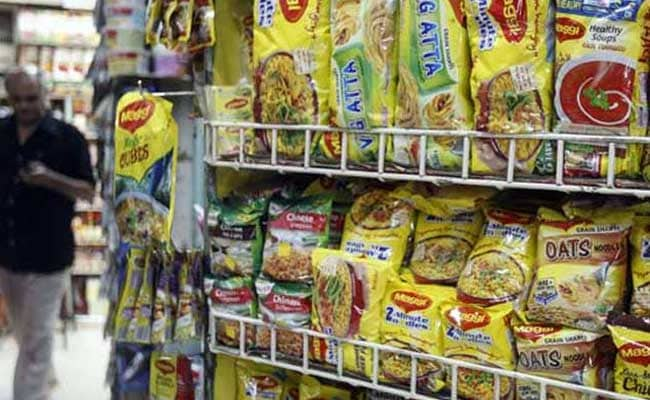
Maggi, a popular noodles brand which has been in India for many decades, is manufactured by Swiss multinational Nestle through its Indian subsidiary.
New Delhi:
The ban on Maggi noodles sent out a "disturbing message" to Switzerland's enterprises, raising questions about the implementation of India's regulatory framework, Swiss Ambassador Linus von Castelmur said today.
Maggi, a popular noodles brand which has been in India for many decades, is manufactured by Swiss multinational Nestle through its Indian subsidiary.
It was back on the shelves from November 9 with the Bombay High Court lifting the ban imposed by food safety regulators. It was banned for allegedly containing lead beyond the permissible limit.
When asked about Maggi ban, Mr Castelmur said: "That was a kind of disturbing message for Swiss enterprises, who are long invested in India and who plan to invest in India."
They could look at other countries for investments, he said.
"I think the ban was not justified clearly. It could not be substantiated very clearly. That is something that is disturbing potential investors or investors who want to do something," Mr Castelmur told PTI.
It was a disturbing message in the sense that the regulatory framework is not clear enough and is not always applied in a convincing manner, he said.
"Swiss enterprises, reliable enterprises, producing all over the world and who want to invest in India are raising questions about the regulatory framework and the consistency and implementation and control by one of these authorities," he noted.
He added however that the Indian market cannot be ignored considering its size and talent pool but issues such as the ban could make things difficult.
"...image is something important you know. You might want to shift production from country A to country B. You have many choices also you have huge competition between different countries. So I mean it might result that prospective investors who wanted to invest in India may shift to other countries," he said.
On whether the government needs to go the extra step to address the issue, Mr Castelmur said the matter is about implementation and consistency.
"I think it is implementation and consistency. There are many laws and the framework could be good but implementation of the framework should be worked on. We hope that the authorities understand that there has to be some work done," he said.
Maggi, a popular noodles brand which has been in India for many decades, is manufactured by Swiss multinational Nestle through its Indian subsidiary.
It was back on the shelves from November 9 with the Bombay High Court lifting the ban imposed by food safety regulators. It was banned for allegedly containing lead beyond the permissible limit.
When asked about Maggi ban, Mr Castelmur said: "That was a kind of disturbing message for Swiss enterprises, who are long invested in India and who plan to invest in India."
They could look at other countries for investments, he said.
"I think the ban was not justified clearly. It could not be substantiated very clearly. That is something that is disturbing potential investors or investors who want to do something," Mr Castelmur told PTI.
It was a disturbing message in the sense that the regulatory framework is not clear enough and is not always applied in a convincing manner, he said.
"Swiss enterprises, reliable enterprises, producing all over the world and who want to invest in India are raising questions about the regulatory framework and the consistency and implementation and control by one of these authorities," he noted.
He added however that the Indian market cannot be ignored considering its size and talent pool but issues such as the ban could make things difficult.
"...image is something important you know. You might want to shift production from country A to country B. You have many choices also you have huge competition between different countries. So I mean it might result that prospective investors who wanted to invest in India may shift to other countries," he said.
On whether the government needs to go the extra step to address the issue, Mr Castelmur said the matter is about implementation and consistency.
"I think it is implementation and consistency. There are many laws and the framework could be good but implementation of the framework should be worked on. We hope that the authorities understand that there has to be some work done," he said.
Track Latest News Live on NDTV.com and get news updates from India and around the world

